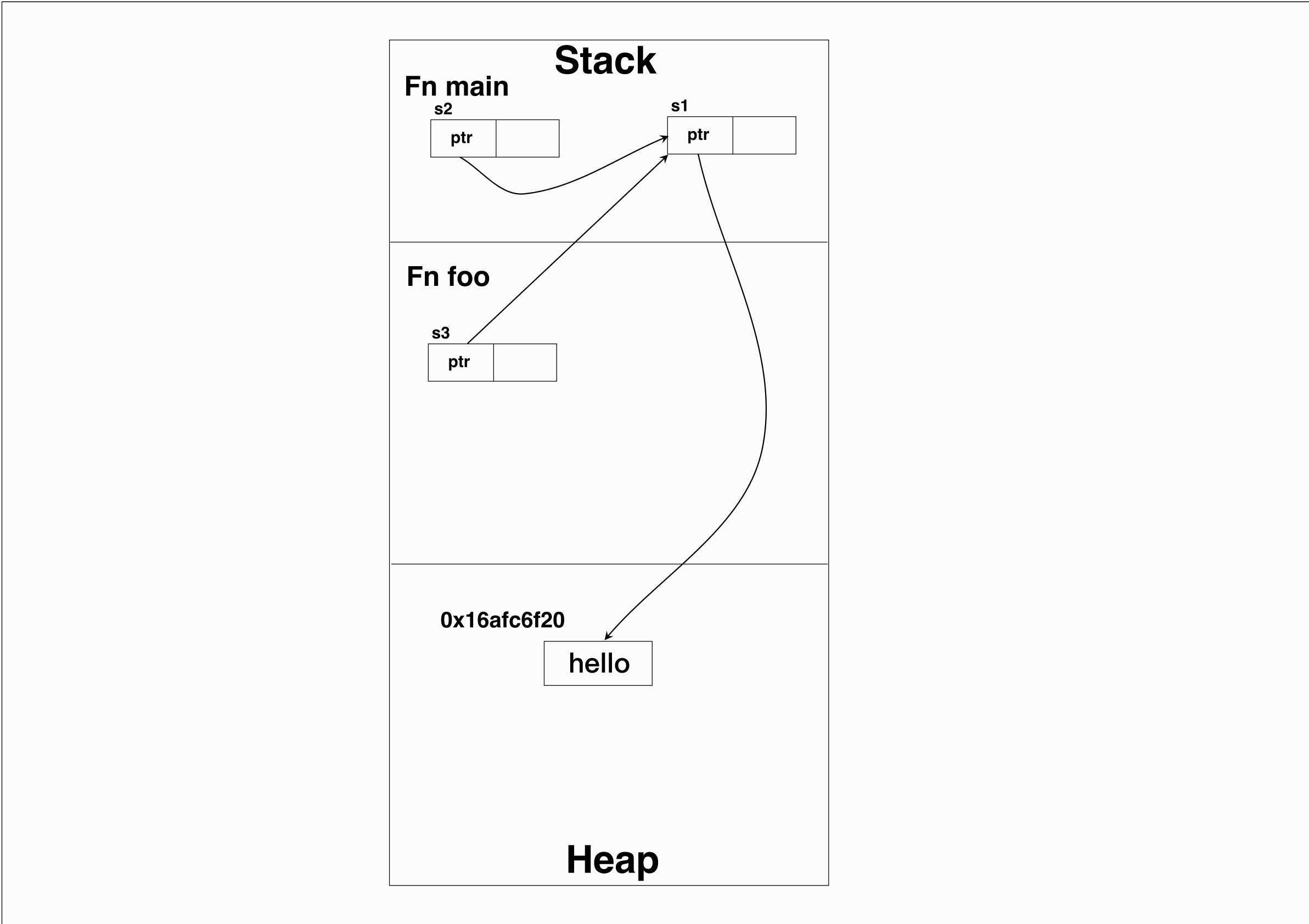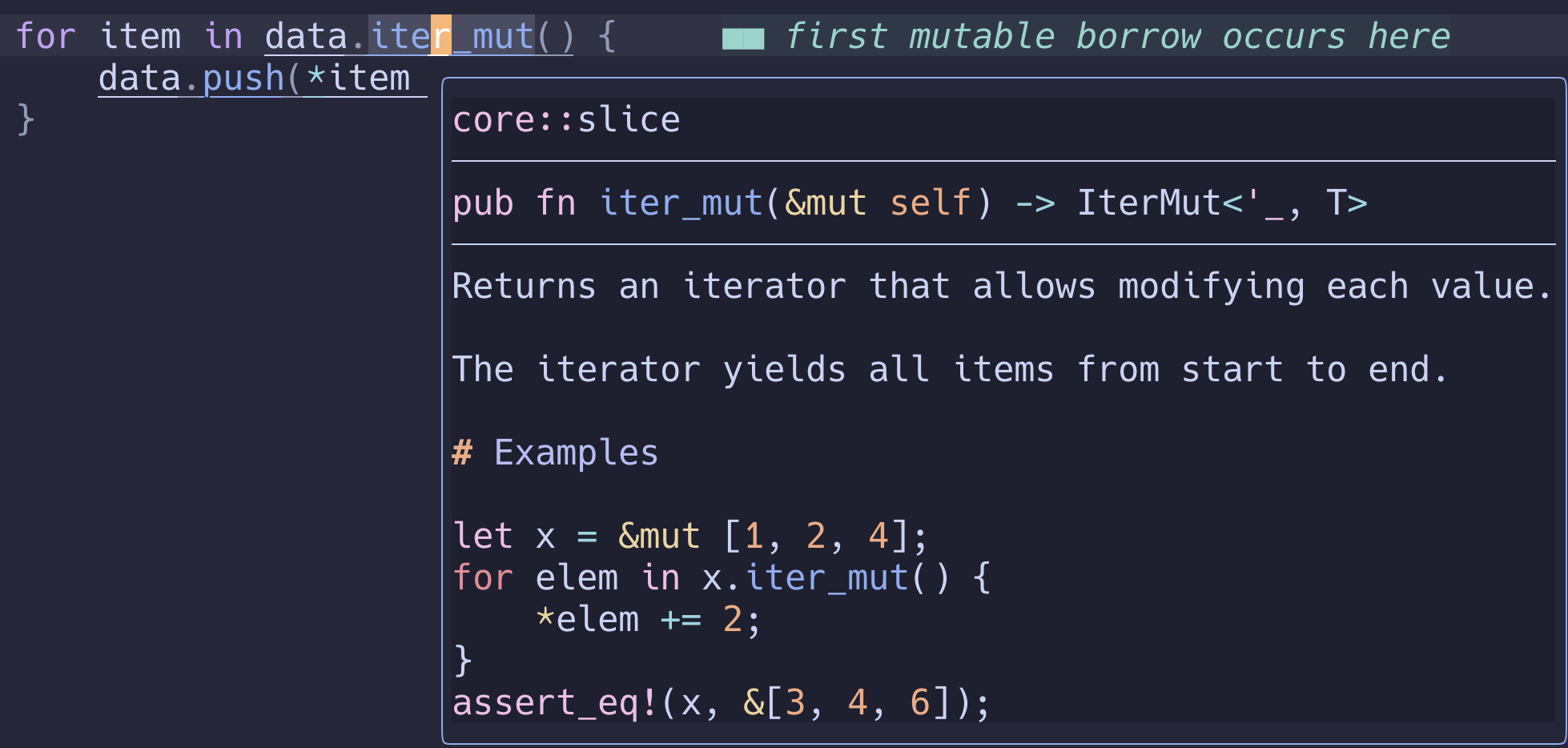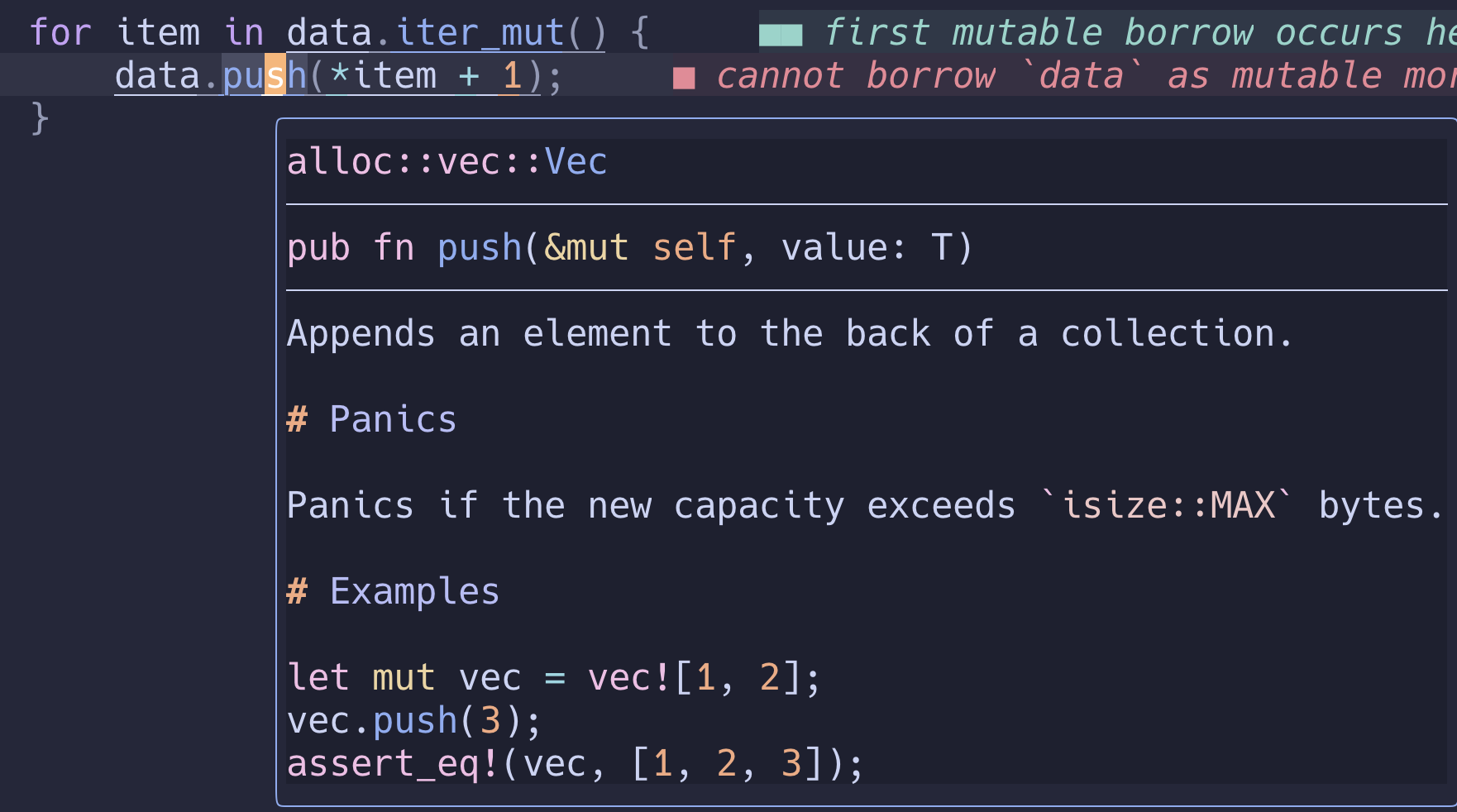上一篇Ownership我們講到,當我們給予變數值或是傳遞給函式的時候,若資料結構可以使用Copy trait會複製一份數據,如果不能,則會使用Move,原來的變數就不能夠繼續使用。
這帶來了不方便的地方,當我們希望值的所有權不被轉移,但又能被其他函式所用該怎麼做呢?這時候 Borrow(借用) 的功能派上用場了。
就像上面所提到 借用 的概念是允許一個值的所有權在不發生轉移的情況下,可以被其他變數或函式所使用。可以透過&或 &mut來實現。
也就是說一個值可以有多個對象可以對其進行 讀 ,原則上所有的對象只是 臨時借用了使用權 並不影響同時間只能有一個擁有者這條規則。
在預設的狀況下,借用只能是讀不能寫入。因此當我們不想 Copy 或是 Move 時就可以使用 Borrow 。
fn main() {
let s1 = String::from("hello");
let s2 = &s1;
println!("value address, s1: {:p}, s2: {:p}", &s1, s2); // s1: 0x16afc6f20, s2: 0x16afc6f20
println!("ref address, s1: {:p}, s2: {:p}", &&s1, &s2); // s1: 0x16afc6ff0, s2: 0x16afc6f38
foo(&s1);
}
fn foo(s3: &String) {
println!("value address, s3: {:p}", s3); // s3: 0x16afc6f20
println!("ref address, s3: {:p}", &s3); // s3: 0x16afc6e40
}
這邊可以看到s1, s2, s3都有各自引用的記憶體位置,但指針都指向同一筆資料。
雖然 hello 有很多指針指向它,但它的擁有者只有一個,因此值是可以被複數引用。

剛才有提到,預設中借用只能是讀,那如果我們想修改引用的值呢?這時只需要在 & 後加個 mut 就可以修改了 &mut 。
fn main() {
let mut s1 = vec![1];
foo(&mut s1);
println!("{:?}", s1);// [1, 2]
}
fn foo(s2: &mut Vec<i8>) {
s2.push(2);
}
但是在同一個作用域同一個變數不能有多個可變引用
fn main() {
let mut s = String::from("hello");
let s1 = &mut s; // first mutable borrow occurs here
let s2 = &mut s; // second mutable borrow occurs here
println!("{}, {}", s1, s2); // first borrow later used here
}
error[E0499]: cannot borrow 's' as mutable more than once at a time
為什麼會有這些限制呢?因為要避免資料競爭(data races)。
當有一個值被複數的引用,而在這期間這個值被某個引用給修改了,那其他引用的將會得到未預期的值,而且會非常的難Debug。
舉個例子: 迭代失效(Iterator invalidation)
fn main() {
let mut data = vec![1, 2, 3];
for item in data.iter_mut() { // first mutable borrow occurs here
data.push(*item + 1); // second mutable borrow occurs here
}
}
當在遍歷data的時候,又持續往data裡新增資料,會造成死循環導。data.iter_mut 方法是 &mut , data.push 也是 &mut,在同作用域有多個可變引用,因此編譯器過不了。


我們可以用Python來體驗一下死循環的迭代
if __name__ == "__main__":
data = [1]
for item in data:
data.append(item + 1)
print(item)
還有另一種情況是如果引用了已經被釋放掉的值會怎麼樣呢?
fn main() {
let s = 10;
let s1 = foo(s);
}
fn foo<'a>(s: i32) -> &'a i32 {
let s2 = s + 1;
&s2 // error[E0515]: cannot return reference to local variable `s2`
}
可以發現我們無法回傳 引用 在函式中建立的變數。Rust在作用域結束後會自動Drop釋放所有在作用域中建立的變數,因此當 s1 拿到 foo() 回傳的 s2 引用時, s2 已經被釋放掉了。
讓我們來整理一下重點:
source:
Let's get rusty
Rust offcial doc
